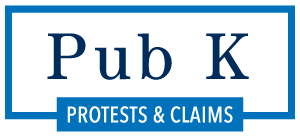The agency excluded the protester from the competition due to organizational conflicts of interest. The agency said there was at least the appearance of an OCI because the protester had another contract that gave it unequal access to FEMA information. The protester also appeared to have an impaired objectivity OIC because it other contract required the protester to maintain a competitor's equipment as well as its own. The protester objected, but GAO denied the protest.
WSP USA, Inc., GAO B-422725
- Exclusion - The agency issued an RFP for the rapid deployment of leased or rented generator sets to support the Federal Emergency Management Agency's (FEMA) disaster relief operations. The agency excluded the protester from the competition due to organizational conflicts of interest (OCI) for a contract the protester has with the U.S. Army Corps of Engineers (Corps). The protester challenged the exclusion.
- Unequal Access - The agency determined that the protester's Corps contract would give the protester unequal access to information. For the contract at issue, the agency relied on FEMA and Corps to define the requirements. The protester's contract with the Corps gave it access to the full FEMA Generator Inventory list and full visibility over the type of generators FEMA had available even before the agency. The protester contended this information was neither proprietary nor competitively useful because the information would eventually be shared with the public. GAO found the timing gave a competitive advantage. The protester would have access to the information sooner and would consequently have more time to prepare its quotation.
- Impaired Objectivity - The agency concluded the protester's role on the Corps contract of hauling generators to install location, installing, fueling, etc. would be performed on both its own and its competitors' generators. The protester argued these responsibilities did not include advising FEMA about potential sources for its generators, but the agency responded that although FEMA has the final say, the Corps's contractor recommendation to replace and repair defective units played a significant role. GAO found the agency's decision to exclude the protester from the competition was reasonable.
The protester was represented by Amy C. Hoang, Zachary F. Jacobson, and Sarah E. Barney of Seyfarth Shaw LLP. The agency was represented by Ashley L. Peskoe of the Defense Logistics Agency. Uri R. Yoo and Alexander O. Levine of GAO participated in the preparation of the decision.
-- Case summary by Joshua Lim, Assistant Editor




